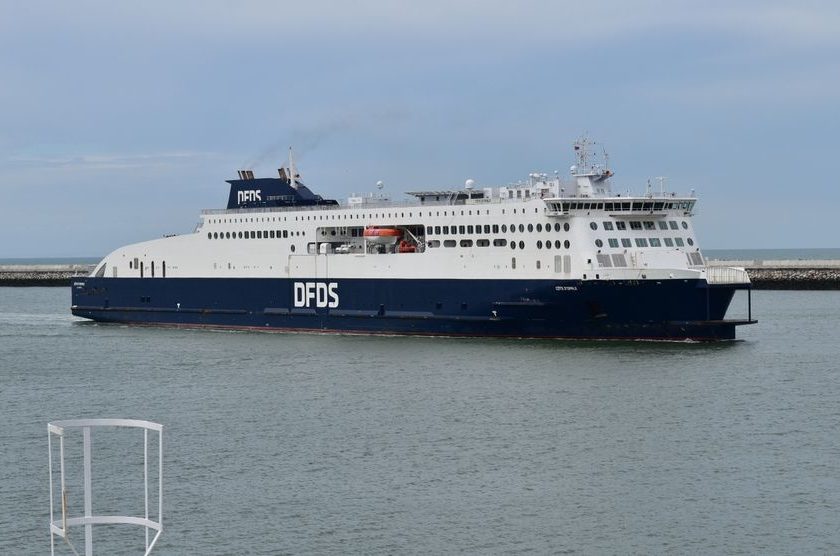DFDS acquires Ekol Logistics for EUR 260M
NewsThe international transport network of Ekol Logistics has 3,700 employees and logged sales of DKK 3.5B (EUR 470M) in 2023.
DFDS will deploy two battery electric vessels on the English Channel by 2030, as part of a larger investment in green vessels totaling DKK 7.3B (EUR 978M).

DFDS, a Copenhagen-headquartered freight and passenger ferry operator, recently announced the deployment of battery electric vessels fleet on the English Channel.
According to DFDS, the company will deploy two battery-powered vessels in the Eastern Channel by 2030. This is part of a program to invest in six green vessels – two methanol, two ammoniac and two electric – for a total of around DKK 7.3B (EUR 978M) over the next six years. The long-term goal is to introduce up to six fully electric vessels on the channel.
The routes on the channel are optimal for electric ferry transport due to the relatively short distance between the UK and the European continent.
“We have a shared ambition with the UK Government to decarbonise maritime traffic across the channel. The transition is not going to be easy. It requires significant investments in innovation, technology and infrastructure, and collaboration and partnerships between the public and private sectors. But I am confident that we will succeed. DFDS will invest in green vessels and cooperate with ports and governments on both sides of the channel to decarbonise cross-channel transportation,” said Torben Carlsen, CEO of DFDS hosting UK Minister for Investment and Regulatory Reform, Lord Dominic Johnson earlier in April.
Johnson visited DFDS headquarters to discuss the decarbonisation of the shipping sector and the electrification of maritime traffic across the English Channel.
WorldCargo News approached DFDS asking for more details on the project.
“We are deploying the battery electric vessels to the English Channel on the Dover Strait and therefore, we are collaborating with Port of Dover, Port Boulogne Calais, and Dunkerque-Port to enable electrification of maritime traffic on the Channel,” DFDS’ spokesperson explained. “Regarding the methanol and ammonia vessels, we are currently working on the detailed planning, and it is too early to say anything about where these vessels will be in operation at this point.”
“The green transition of maritime transport not only relies on the ships at sea. A sufficient power supply on land and infrastructure to accommodate recharging facilities in ports are equally important to be able to complete fleet electrification. We are collaborating with the Port of Dover, Port Boulogne Calais, and Dunkerque-Port, and last year we signed an MoU outlining our shared ambition to invest in the development and delivery of battery-powered electric or fuel-electric ferries and the infrastructure required to charge them in the ports,” DFDS added.
Furthermore, regarding financing the development of the six green vessels, DFDS’ spokesperson said: “We are ramping up our focus on how we source local government and EU funding that should be available for the green transition. For instance, we are looking into the EU Innovation Fund and the EU Hydrogen Bank.”
The English Channel is one of the busiest shipping corridors in the world. It links two of the world’s biggest economies and accounts for 33% of the trade between the EU and the UK.
DFDS has 12 routes connecting the UK to France, Germany, The Netherlands, Sweden and Denmark and employs 3,300 people in 5 ports, several logistics offices in the UK and onboard 3 UK-flagged vessels.
By subscribing you will have: